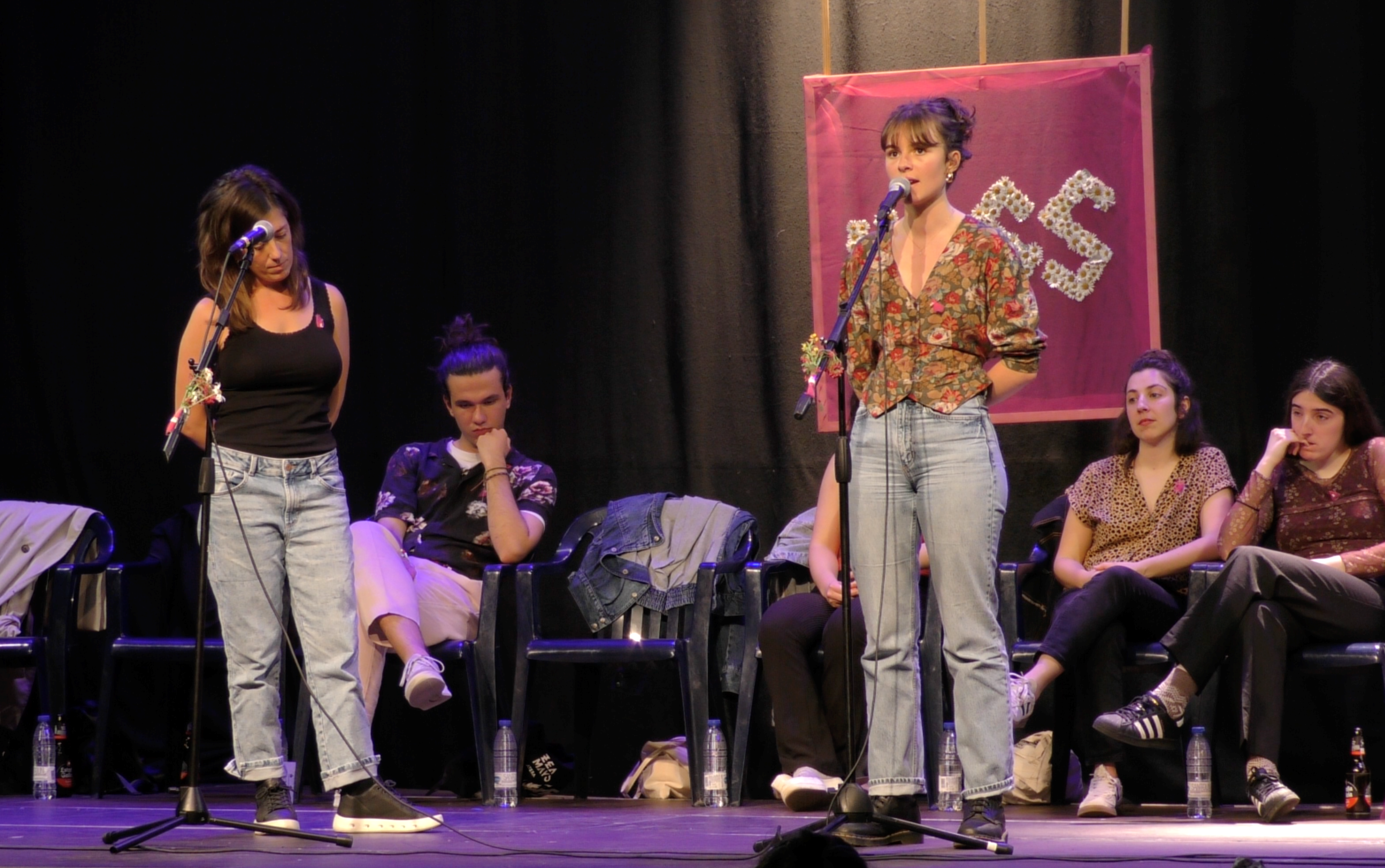In the professional dance sector, women have fewer opportunities than men
- Research into the situation of women and men in the dance industry at the CAPV has found that the presence of men in the professional dance sector is greater than that of women and that men have better opportunities. The opinion and vision of programmers, choreographers and distributors is collected. It is observed that men have more opportunities and highlights that for women, motherhood is a great obstacle.

Jemima Cano Martínez, led by the Department of Culture and Linguistic Policy of the Basque Government, has investigated the dance sector that presents itself as a professional. The aim was to analyze the CAV dance industry from a gender perspective and to show that, being a feminized sector, men and women experience different situations if we look at issues related to work, distribution or visibility.
The study analyzed the groups and individuals that generate, treat, make possible or distribute culture for profit. Therefore, traditional dance has not been taken into account.

Power relations and barriers
Many of the women interviewed notice the weight of the glass ceiling. Workers distributing or defending a company run by a male choreographer recognize that if the artistic director is a man, the work is sold more easily. More than one dealer has said that in these environments there is a power game between the male buyer and the female seller.
Interpreters or choreographers see it clear that care tasks related to motherhood remain primarily in the hands of women. Due to maternity cases, all interviewees state that the company's normal production rate changes. Some have had to pause or abandon professional dance; others have not been able to accept creative offers, international tours or residences, and others have had to make minor adaptations.

What does the researcher say?
Jemima Cano Martínez has observed that the presence of women in the world of dance is greater than that of men, but not so in the dance industry. The average number of men has seen that they have more opportunities: they have more performances, they receive more prizes, they occupy positions of responsibility, they are invited as teachers or experts. Women, however much they may be, become more difficult to access these places.

Steps to improve the situation
The report sought to take account of the reality of companies, start-ups and programming areas and to offer practical measures to ensure equality between men and women in the near future.
The interviewed women have highlighted that one of the biggest difficulties to reconcile creativity with the care of their children, so Cano has presented several proposals to facilitate the path to dancing mothers. Among other things, to agree on flexible working hours or to adapt working spaces (lactation areas, childcare service...).

It says that programs must be created to strengthen empowerment and support networks for women creators, choreographers and dance company managers. It also proposes the organization of the Basque dance awards, which would give a boost to the groups, both for the market and for the reputation of the company. He also believes that it would be of great help to integrate the view of young people, for which he proposes a collaboration with Dantzerti.
Report: Situation of women and men in the dance industry at CAPV (2020-06, Jemima Cano Martínez, Department of Culture and Linguistic Policy of the Basque Government)
Festa egiteko musika eta kontzertu eskaintza ez ezik, erakusketak, hitzaldiak, zine eta antzerki ikuskizunak eta zientoka ekintza kultural antolatu dituzte eragile ugarik Martxoaren 8aren bueltarako. Artikulu honetan, bilduma moduan, zokorrak gisa miatuko ditugu Euskal Herriko... [+]
The idea that we in the dance world often repeat is that dance is ephemeral. The Elhuyar dictionary gives as a counterpart to "ephemeral" English: ephemeral, destructive, perishable, ephemeral, ephemeral, perishable, perishable, ilaun. I don't remember who I first read that idea... [+]
Moor Krad
By: Ertza company.
When: 3 October.
Where: In the Muxikebarri room of Getxo.
---------------------------------------------
Two years later I met the work Moor Krad, in which members of the company Ertza created and premiered the piece. So in 2022, I tried to... [+]
Transmisioa eta dantza taldeetako erreleboa aztertu nahi izan dugu Dantzan Ikasi topaketetan, eta gazte belaunaldiek lan egiteko ereduak ezagutu nahi izan ditugu “Gazteen parte-hartzea euskal dantzan” mahai inguruan: Eder Niño Barakaldoko... [+]




















